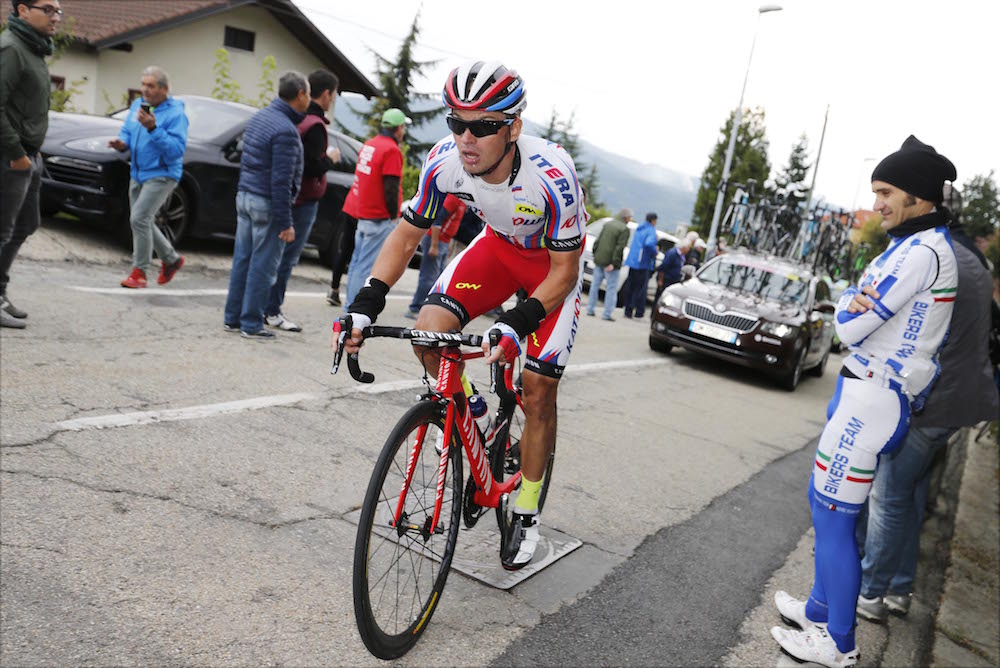Eduard Vorganov's provisional suspension for Meldonium positive lifted
Russian rider is free to race again pending the full outcome of his case resulting from a positive test for Meldonium in January 2016


Eduard Vorganov (Sunada)
The latest race content, interviews, features, reviews and expert buying guides, direct to your inbox!
You are now subscribed
Your newsletter sign-up was successful
The Union Cycliste Internationale (UCI) announced on Monday that it has lifted the provisional suspension of Russian rider Eduard Vorganov, who returned a positive test for Meldonium in January.
Vorganov had been provisionally suspended by the UCI under its anti-doping rules. He tested positive for Meldonium after an out-of-competition test on January 14.
The Katusha rider subsequently requested that the provisional suspension be lifted, and the UCI's Disciplinary Commission agreed. He is now free to race again.
>>> Some meldonium users could escape punishment after WADA clarifies rules
According to the UCI's rules, a provisional suspension can be lifted when "the Rider establishes the assertion of the Anti-Doping Rule Violation (ADRV) has no reasonable prospect of being upheld, or that there is a strong arguable case that he bears 'No fault or Negligence' for the ADRV asserted, or some other facts or circumstances exist that, in the UCI Disciplinary Commission’s opinion, make it clearly unfair to impose or maintain the Provisional Suspension."
The exact reason given to lift the suspension has not been disclosed.
Despite the lifting of the provisional suspension, Vorganov's case is continuing to be examined and the UCI's Disciplinary Commission has yet to give its final decision.
The latest race content, interviews, features, reviews and expert buying guides, direct to your inbox!
Meldonium hit the headlines earlier this year when Russian tennis superstar Maria Sharapova announced that she had failed a test for the substance, which was only placed on the World Anti-Doping Agency's list of banned substances from January 1.
In March, WADA reported that there had been over 100 positive cases for the drug since January 1. WADA stated in early April that athletes with less than one microgram of Meldonium in their sample taken before March 1 may not be sanctioned.
Watch: Anti-doping debate
"In the case of Meldonium, there is currently a lack of clear scientific information on excretion times,” read a WADA statement. "For this reason, a hearing panel might justifiably find (unless there is specific evidence to the contrary) that an athlete who has established on the balance of probabilities that he or she ingested Meldonium before 1 January 2016 could not reasonably have known or suspected that the Meldonium would still be present in his or her body on or after 1 January 2016.
"In these circumstances, WADA considers that there may be grounds for no fault or negligence on the part of the athlete."

Nigel Wynn worked as associate editor on CyclingWeekly.com, he worked almost single-handedly on the Cycling Weekly website in its early days. His passion for cycling, his writing and his creativity, as well as his hard work and dedication, were the original driving force behind the website’s success. Without him, CyclingWeekly.com would certainly not exist on the size and scale that it enjoys today. Nigel sadly passed away, following a brave battle with a cancer-related illness, in 2018. He was a highly valued colleague, and more importantly, an exceptional person to work with - his presence is sorely missed.